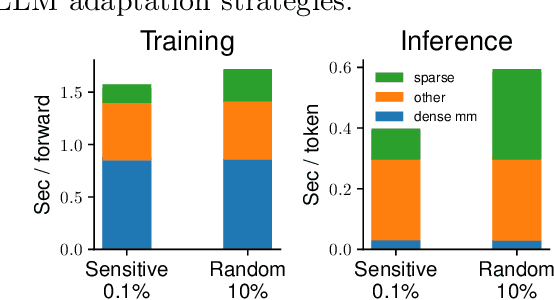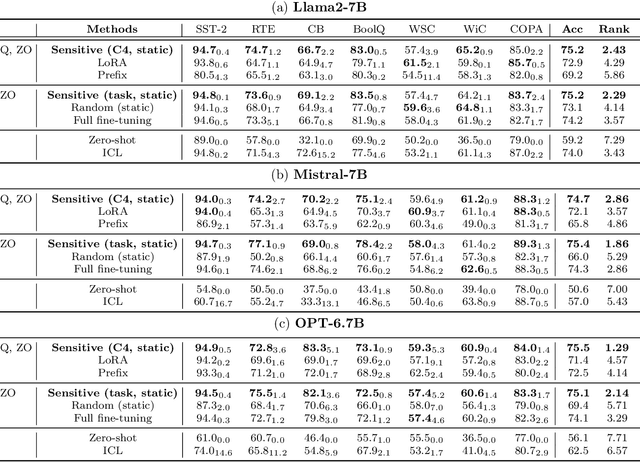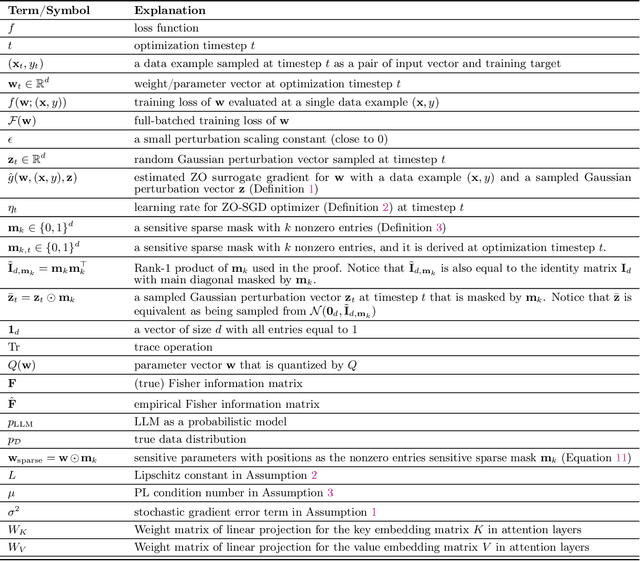Jikai Long
Zeroth-Order Fine-Tuning of LLMs with Extreme Sparsity
Jun 05, 2024



Abstract:Zeroth-order optimization (ZO) is a memory-efficient strategy for fine-tuning Large Language Models using only forward passes. However, the application of ZO fine-tuning in memory-constrained settings such as mobile phones and laptops is still challenging since full precision forward passes are infeasible. In this study, we address this limitation by integrating sparsity and quantization into ZO fine-tuning of LLMs. Specifically, we investigate the feasibility of fine-tuning an extremely small subset of LLM parameters using ZO. This approach allows the majority of un-tuned parameters to be quantized to accommodate the constraint of limited device memory. Our findings reveal that the pre-training process can identify a set of "sensitive parameters" that can guide the ZO fine-tuning of LLMs on downstream tasks. Our results demonstrate that fine-tuning 0.1% sensitive parameters in the LLM with ZO can outperform the full ZO fine-tuning performance, while offering wall-clock time speedup. Additionally, we show that ZO fine-tuning targeting these 0.1% sensitive parameters, combined with 4 bit quantization, enables efficient ZO fine-tuning of an Llama2-7B model on a GPU device with less than 8 GiB of memory and notably reduced latency.
Token-wise Influential Training Data Retrieval for Large Language Models
May 20, 2024Abstract:Given a Large Language Model (LLM) generation, how can we identify which training data led to this generation? In this paper, we proposed RapidIn, a scalable framework adapting to LLMs for estimating the influence of each training data. The proposed framework consists of two stages: caching and retrieval. First, we compress the gradient vectors by over 200,000x, allowing them to be cached on disk or in GPU/CPU memory. Then, given a generation, RapidIn efficiently traverses the cached gradients to estimate the influence within minutes, achieving over a 6,326x speedup. Moreover, RapidIn supports multi-GPU parallelization to substantially accelerate caching and retrieval. Our empirical result confirms the efficiency and effectiveness of RapidIn.
 Add to Chrome
Add to Chrome Add to Firefox
Add to Firefox Add to Edge
Add to Edge